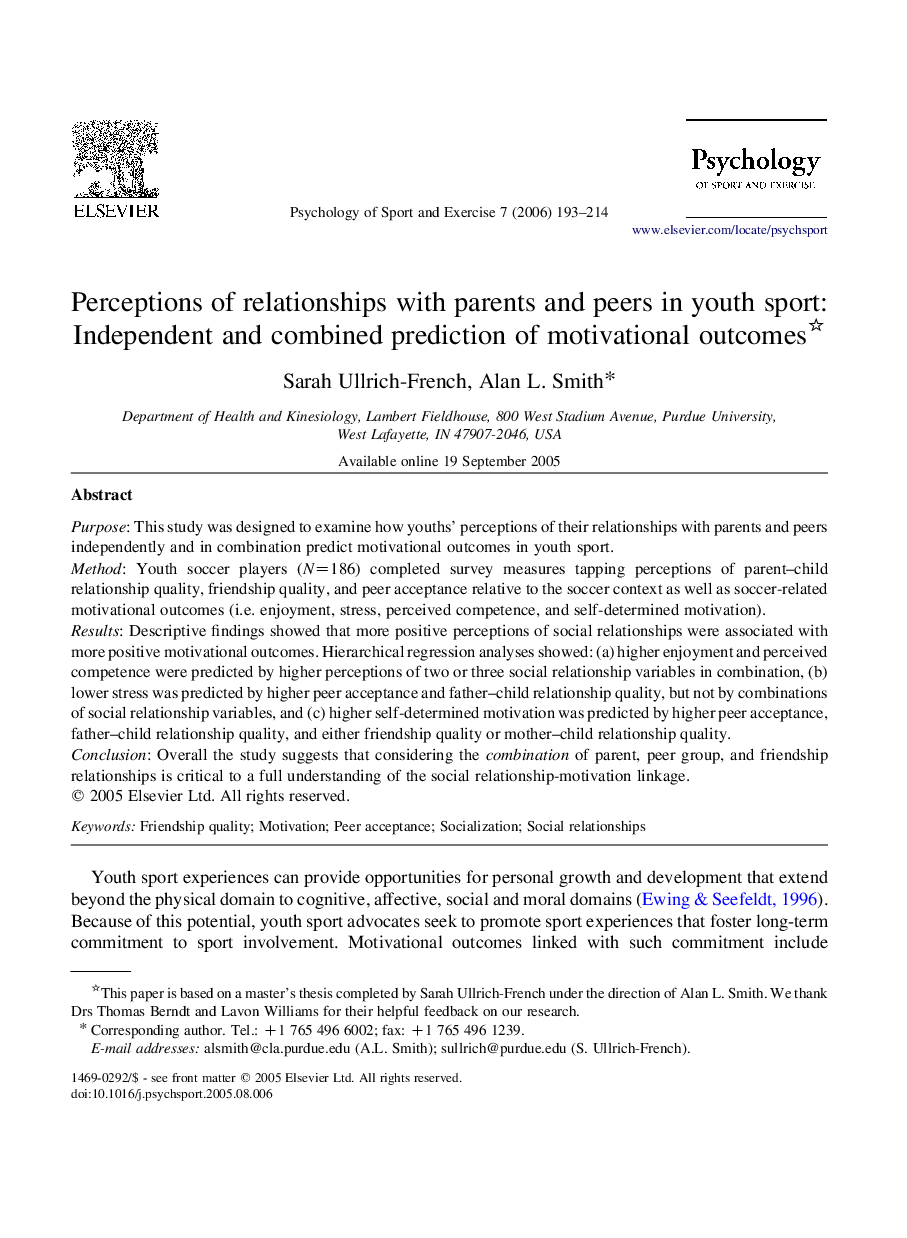| Article ID | Journal | Published Year | Pages | File Type |
|---|---|---|---|---|
| 894955 | Psychology of Sport and Exercise | 2006 | 22 Pages |
PurposeThis study was designed to examine how youths' perceptions of their relationships with parents and peers independently and in combination predict motivational outcomes in youth sport.MethodYouth soccer players (N=186) completed survey measures tapping perceptions of parent–child relationship quality, friendship quality, and peer acceptance relative to the soccer context as well as soccer-related motivational outcomes (i.e. enjoyment, stress, perceived competence, and self-determined motivation).ResultsDescriptive findings showed that more positive perceptions of social relationships were associated with more positive motivational outcomes. Hierarchical regression analyses showed: (a) higher enjoyment and perceived competence were predicted by higher perceptions of two or three social relationship variables in combination, (b) lower stress was predicted by higher peer acceptance and father–child relationship quality, but not by combinations of social relationship variables, and (c) higher self-determined motivation was predicted by higher peer acceptance, father–child relationship quality, and either friendship quality or mother–child relationship quality.ConclusionOverall the study suggests that considering the combination of parent, peer group, and friendship relationships is critical to a full understanding of the social relationship-motivation linkage.
